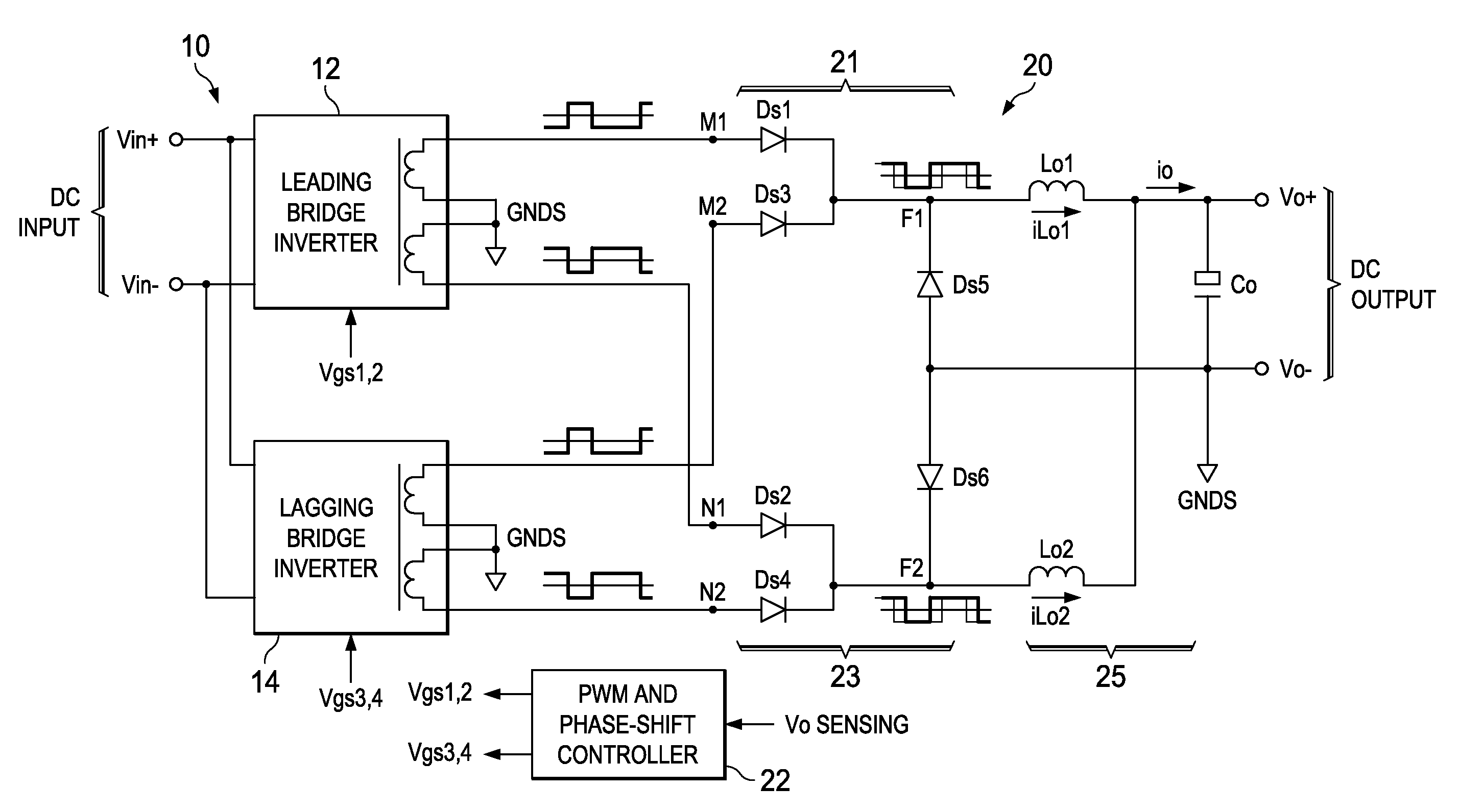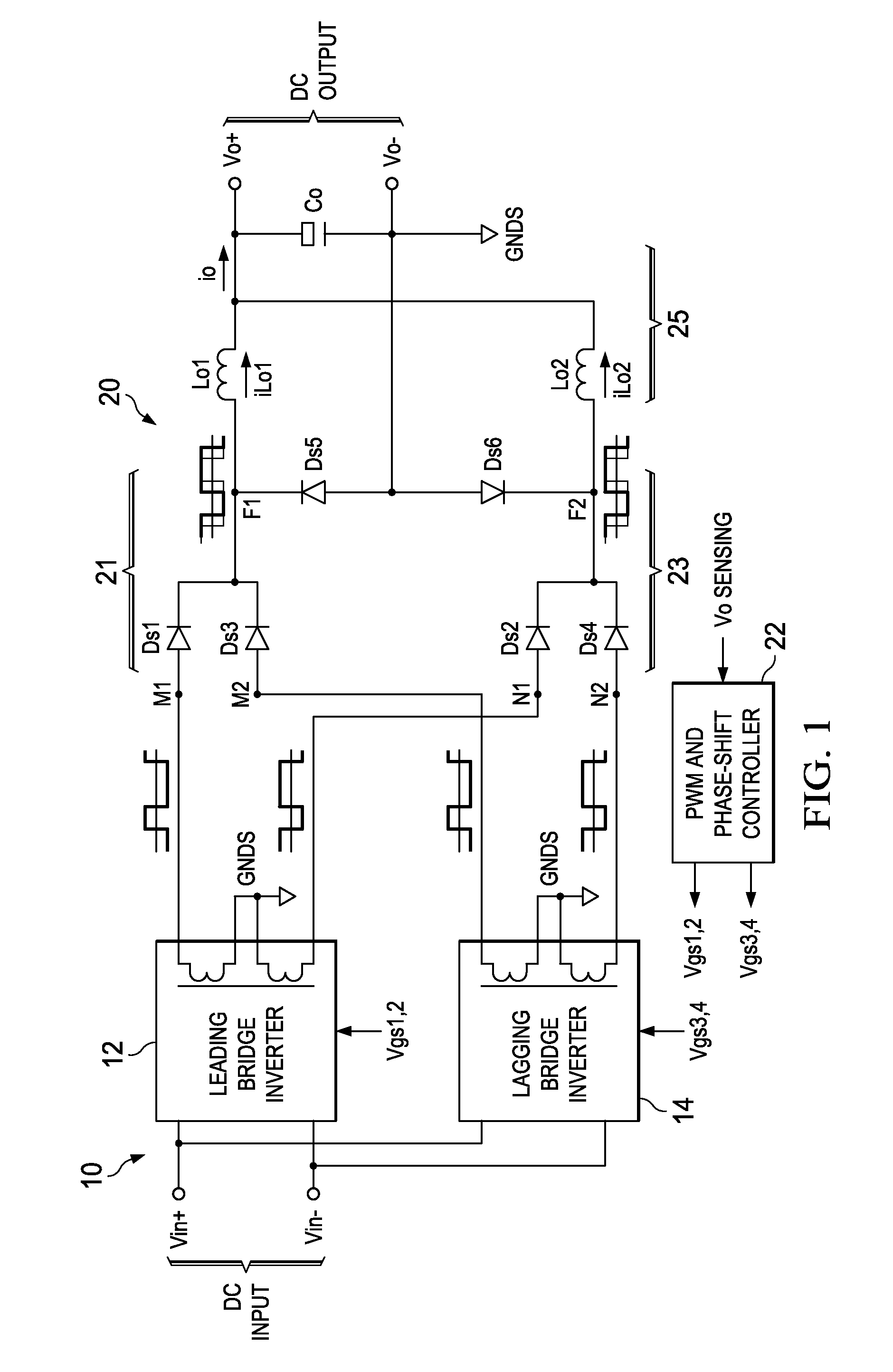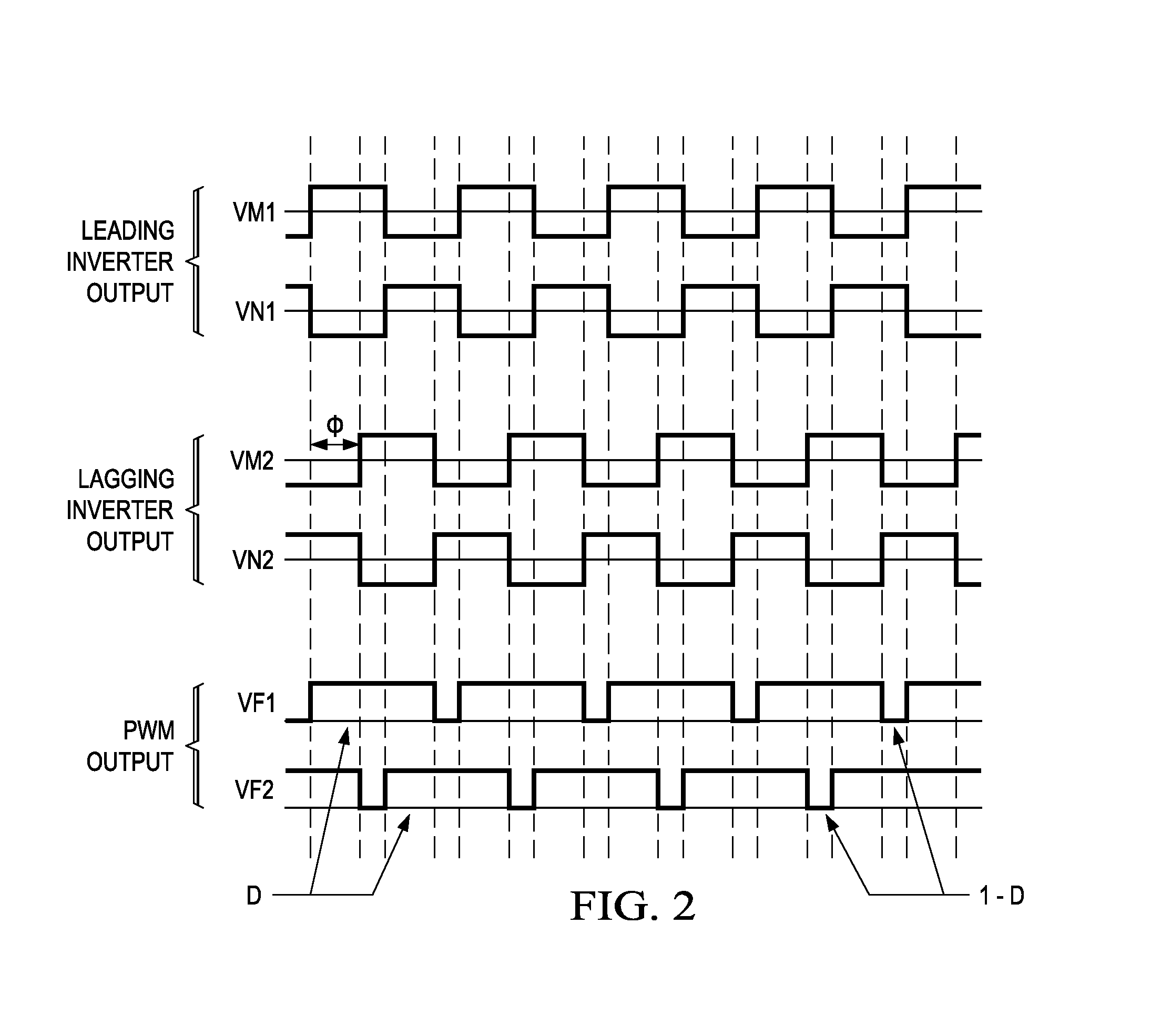Phase-shifted dual-bridge DC/DC converter with wide-range ZVS and zero circulating current
a phase-shifted, dc/dc converter technology, applied in the direction of dc-dc conversion, power conversion systems, instruments, etc., can solve the problems of more voltage ringing across the output rectification device, higher voltage spike, etc., to achieve more voltage ringing, increase voltage spike, and energy-saving
- Summary
- Abstract
- Description
- Claims
- Application Information
AI Technical Summary
Benefits of technology
Problems solved by technology
Method used
Image
Examples
Embodiment Construction
[0034]In the following description, various components and connection nodes will have letter designations and circuit blocks and complicated waveforms will have number designations additionally to make description easier to understand and to simplify the associations between schematic diagrams and waveforms.
[0035]In FIG. 1, illustrated are a DC / DC converter primary 10 comprising bridge inverters 12 and 14, a DC / DC converter secondary 20 comprising two full-wave rectification circuits 21 and 23 and an output filter 25, and a PWM and Phase-Shift controller 22. The phase of the bridge inverter 12 always leads that of the bridge inverter 14 when a phase-shift control is applied to the converter. Because of the phase relationship, the bridge inverter 12 is referred to as Leading Bridge Inverter and the bridge inverter 14 Lagging Bridge Inverter. The converter primary 10 is connected to a DC source by terminals Vin+ and Vin−. Vin+ is the positive input connected to the positive terminal o...
PUM
 Login to View More
Login to View More Abstract
Description
Claims
Application Information
 Login to View More
Login to View More - R&D
- Intellectual Property
- Life Sciences
- Materials
- Tech Scout
- Unparalleled Data Quality
- Higher Quality Content
- 60% Fewer Hallucinations
Browse by: Latest US Patents, China's latest patents, Technical Efficacy Thesaurus, Application Domain, Technology Topic, Popular Technical Reports.
© 2025 PatSnap. All rights reserved.Legal|Privacy policy|Modern Slavery Act Transparency Statement|Sitemap|About US| Contact US: help@patsnap.com



